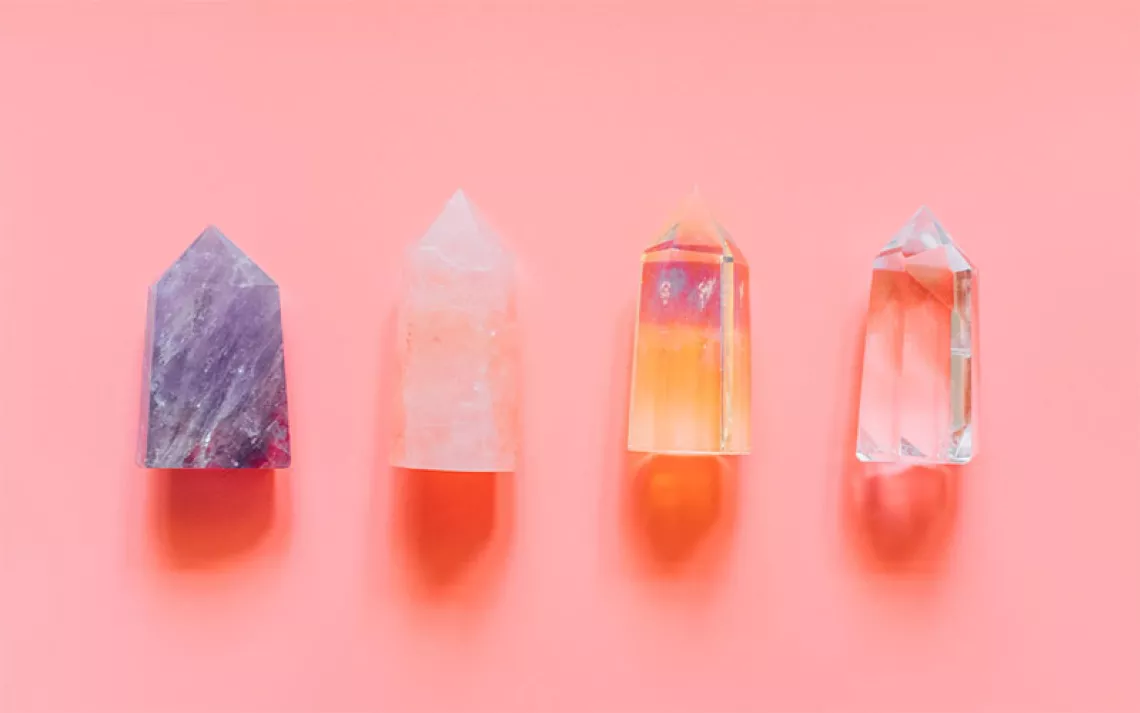The Least-Toxic, Greenest Gizmos for Holiday Gifts
Everything you need to know about unicorn cellphones, power strips, and more

Photo by Vadim Zhakupov/iStock
The day after Thanksgiving is a great opportunity to celebrate Buy Nothing Day and instead opt outside. If you must buy something on Black Friday and you're looking for gizmos, focus on sustainable headsets, power strips, cellphones, computers, tablets, TVs, and even projectors and servers. Nothing says “I love you” like gifts of less-toxic, refurbished, easily fixable, energy-efficient electronics.
“What you buy is important because 79 percent of an electronic product’s lifetime-polluting greenhouse gas emissions happen when it’s manufactured,” Clare Hobby, TCO Certified’s global director of purchaser engagement, told me.
Before you make that purchase though, there are a few things you should consider.
Some electronics are older and wiser! When Kendra Pierre-Louis accidentally dumped Thai food on her computer, she only had to replace the keyboard for $40. If it were a newer computer, she probably would have had to fix the whole computer. I still use my landline phone and refurbished iPhone 4S on Wi-Fi that I got for $0.99 in 2012. Electronics are made from chemicals that are so toxic that when they’re recycled into other products like foodware and toys, they can cause serious reproductive and developmental problems, even at very low levels.
Also, before you look to own more electronic products, make sure you get caught up on the latest best practices for recycling the ones you already own. You can use E-Stewards certified refurbishers to find a recycler near you that will recycle or reuse the materials responsibly. E-Stewards refurbishers and recyclers do not use forced or child labor or send hazardous, illegal e-waste to landfills or developing nations where cancer-causing dioxins can be released into our air. And make sure to check your state’s guidance for discarding electronic waste. You can get fined for putting electronics (like anything with a cord) and accessories in your waste bin.
It would be ideal if we had a culture in which we tended to repair our gizmos before discarding and replacing them. Unfortunately, manufacturers don’t give the public access to repair guides, tools, and parts. That would all change if a Right to Repair bill is introduced in your state. Then you can find out how to fix anything, even vehicles like tractors! For now, fix almost anything (electronics, clothes, furniture, bikes, toys) at free worldwide Repair Cafes or with free guides or guarantee-backed parts from iFixit. Some fixes make me feel like a pro: When my keyboard keys fell off, I taped them on with electrical tape like a bandage for a boo-boo.
But wait, there’s more! Your electronics and appliances suck electricity even when they’re turned off but still plugged in. The top two easiest things you can do to protect your electronics and save at least $100 to $200 a year in energy are putting your computer to sleep when you’re not using it and plugging electronics in a smart power strip surge protector. Just remember to turn it off when you’re not using your electronics. Here’s a great stocking stuffer: a TrickleStar smart power strip. TrickleStar customers include organizations that require it to comply with labor laws and ban conflict minerals that financed civil wars. You even might get an instant rebate from your energy utility.
Your electronics will also live longer if you dress them up in snug, cute cases. After I dropped my ancient Kindle reader and broke it, I soothed myself with an Otterbox shock-absorbing case. I also use Thule’s laptop bumper case with shock-absorbing edges and Lifeproof’s water- and drop-proof phone and tablet case.
If after all that, you still decide you need to buy electronics, or would like to give the best, less-toxic, fair trade, greenest gizmos for holiday gifts, try these:
Cellphone
Fairphone is a rare non–Google Android phone that won’t give Google your data when you’re using your phone. Fairphone 2 and 3 are the only phones in the world with a 10-out-of-10 repairability score from iFixit. They don’t automatically give you a charger, cable, and earphones, so you can keep using accessories you already have. Currently, they ship within Europe and can work around the world. Fairphone’s headset is modular, so if the cable frays, you can just replace it.
Laptops
Greener laptops might be ones made of the first UL-certified recycled plastic coming from litter that would have entered the Caribbean Sea. HP hires locals in Haiti to recycle plastic, then uses it in HP’s Elite Dragonfly and ZBookmobile workstations, which can do intense things like rendering, 3D animation, CAD, data analysis, and video editing. Those laptops are also more sustainable because they’re Energy Star and TCO Certified and EPEAT Gold registered.
Other electronics
If you need other electronics, go on a scavenger hunt for ones that meet as many of these criteria as possible:
- Refurbished
- An E-Steward Enterprise (currently LG and Samsung) because they will send electronics to E-Stewards certified refurbishers and recyclers
- A high iFixit score for cellphones, tablets, and laptops
- TCO Certified (headsets, cellphones, tablets, computers, TVs, projectors)
- EPEAT-registered (which also covers servers and all-in-one printers, scanners, fax machines)
- Energy Star certified
- Cellphone with lower radiation (specific absorption rate [SAR])
“Unlike some ecolabels, TCO Certified hires independent verifiers to test products to meet all criteria (such as performance) and go to factories to verify products are made in a socially and environmentally responsible way throughout the supply chain. If they find violations, they go back on-site to check that problems were corrected,” Hobby told me. Though an EPEAT-registered product doesn’t have to meet all EPEAT criteria, TCO Certified and EPEAT-registered products are less-toxic, more socially responsible, and energy-efficient, longer-lasting, and recyclable.
Ask me about greener ways to do all the things on your cellphone or on the web: meeting, searching, emailing, streaming, storing data, and hosting websites, including how to keep electronics feeling new without contributing to climate change. And ask me how to reduce your exposure to radiation from Wi-Fi and cellphones without wearing a hat made of tin foil!
 The Magazine of The Sierra Club
The Magazine of The Sierra Club



